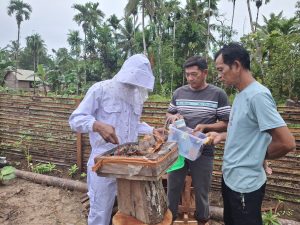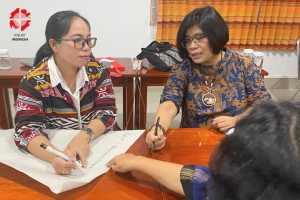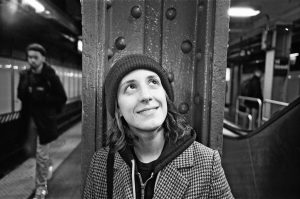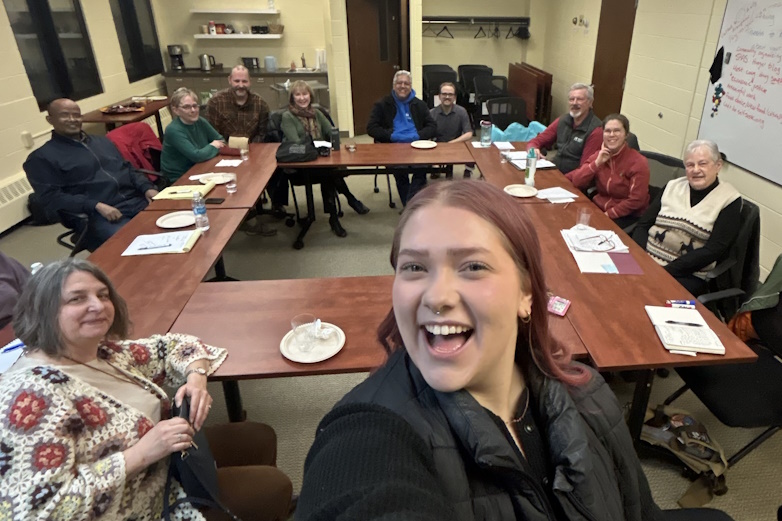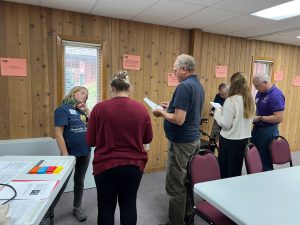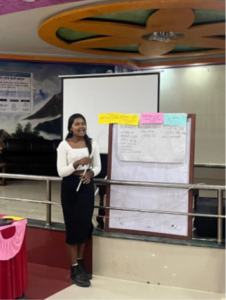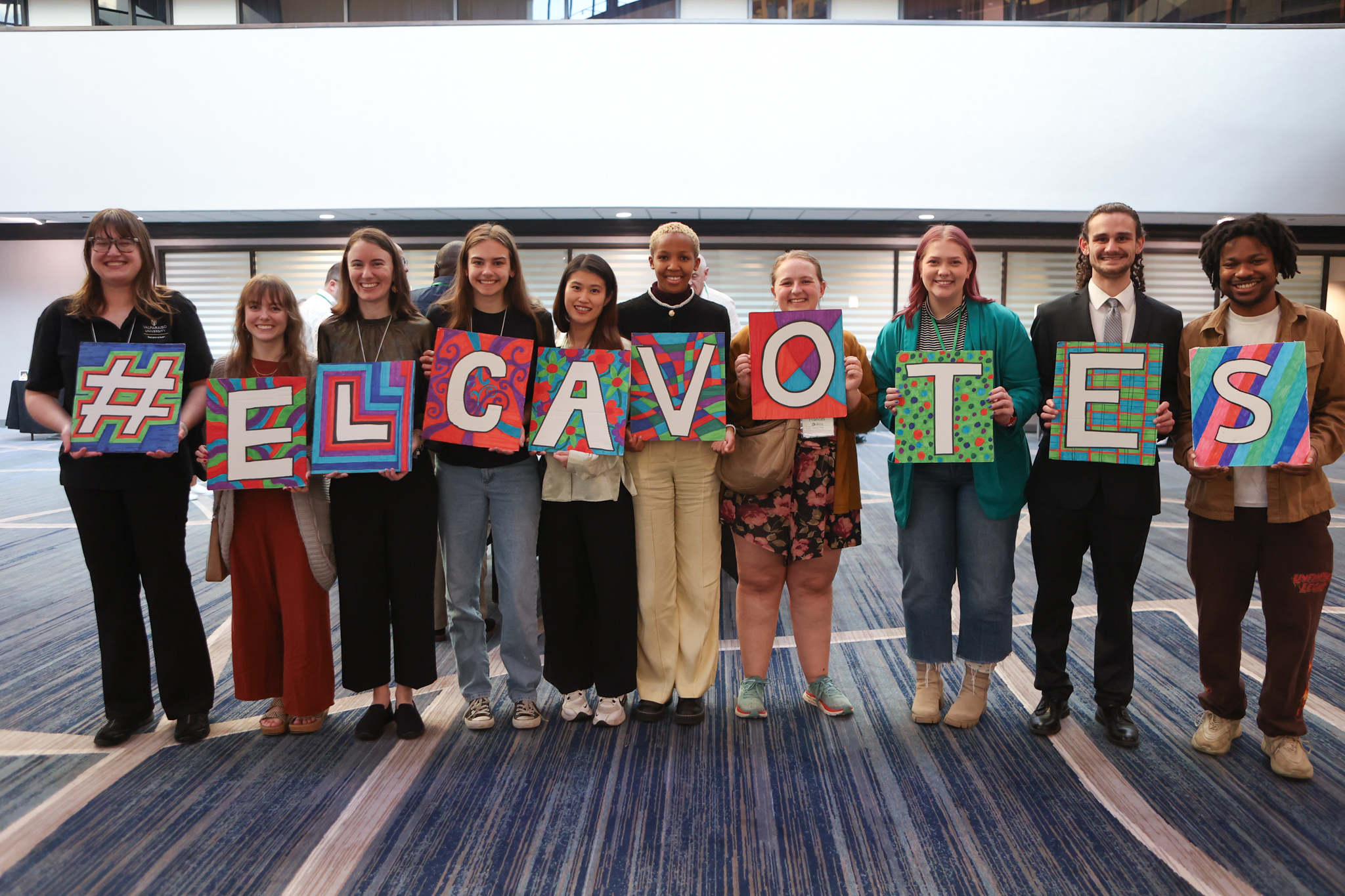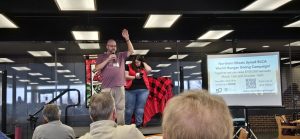On September 22nd, 2025, ELCA World Hunger will officially release our short educational documentary, “Intersections: Justice Ministry with ELCA Partners,” for free on YouTube and Vimeo. You can watch a trailer for the film at the link here. “Intersections” explores stories from three ELCA companion ministries, responding to the overlapping root causes of hunger in the United States and around the world.
This an interview with Ashlyn Rhyne, a recent alumna of the Young Adults in Global Mission (YAGM) program, who served in Cambodia. Rhyne worked primarily with the Lutheran Hope Cambodia Organization (LHCO), who features in the first part of “Intersections.” In addition, she played a key role supporting the production of the film on the ground, coordinating videography, translation, and interviews. This interview was conducted while she was still working in Cambodia.
Thank you for taking time to tell us your story of work alongside our partners in Cambodia, Ashlyn. I’m looking forward to this conversation.
While in Cambodia you’ve spent much of your time accompanying Lutheran Hope Cambodia Organization (LHCO). Can you tell us a little bit about LHCO’s work and what you appreciate most about it?
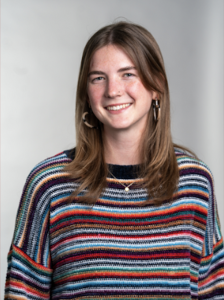
Ashlyn Rhyne, photo provided by author
Lutheran Hope Cambodia Organization (LHCO) is an NGO that serves vulnerable communities in Cambodia through development programs that prioritize human dignity. The main office is in Phnom Penh, and others are in various provinces.
What I appreciate most about LHCO’s work are the people. This year, I have mainly worked in the Phnom Penh office but have also gotten the opportunity to visit other offices. Through these times of accompaniment, I can tell that those who work for LHCO are doing it because they deeply care about the communities they are walking alongside. They are passionate about implementing impactful programs, leading relevant training, finding appropriate funding, and simply completing their everyday work. The positive energy they put into the work then trickles into those they help.
I am continually inspired by the work of LHCO, and I am thankful for the opportunity to learn from them.
Speaking of accompaniment—the ELCA theology of walking with communities as partners in the gospel—could you speak about how you understand “accompaniment”? How have you seen it in person since you began your ministry in Cambodia?
To me, accompaniment is walking alongside my siblings in Christ as we learn from each other, love, yet challenge one another and most importantly, embrace the joy that surrounds us.
Before my YAGM year, I thought of accompaniment on a much larger scale, seeing it more as a series of grand gestures. However, in Cambodia, I have realized that while it can be seen in grand gestures, accompaniment is an everyday act. I feel it when my co-workers step in to translate a conversation from Khmer to English for me. I notice it when strangers help each other cross the busy city streets. My cohort members and I walk hand-in-hand as we journey through our year of service together. I feel it each time I am offered food to try or taught a new Khmer word. I experienced it each day during a week-long holiday, Khmer New Year, when a friend invited me to travel with her family. Accompaniment finds us in the smallest of things. May we continue to find it too, as we learn, love and grow together.
As you know, ELCA World Hunger is preparing to release a short documentary about intersectional justice called Intersections: Justice Ministry with ELCA Partners that, in part, features LHCO’s ministry. You had a large role in bringing that film to audiences in the ELCA network. Could you tell us what your part in the project was?
I worked alongside Mr. Yu, who specializes in IT and communications at LHCO. Prior to filming, I assisted Mr. Yu in creating questions for each interview. We then traveled to two sites in one of the provinces where LHCO has an office. At each site Mr. Yu filmed drone footage, while I captured footage on my camera. During each interview, I listened and watched the camera to make sure the audio and framing stayed consistent, while Mr. Yu asked the questions. Following the filming and interviewing process, Mr. Yu translated the questions and answers from Khmer to English. After Mr. Yu translated the script, I assisted with grammar and spelling corrections. I am honored with the opportunity to share these stories alongside Mr. Yu and I am thankful for how our relationship grew in trust and teamwork.
Finally, to take a phrase from my colleague Regina Banks in the ELCA’s advocacy team (and host of the ELCA Advocacy podcast, “Here I Pod”), where have you seen the Gospel lately?
During my time with LHCO, I have assisted with a new project – Fullness of Life for Children and Youth of the City (FLUCY). As I near the end of my YAGM year, and my time with LHCO, I recently attended the last two FLUCY events before I leave. The youth know little English, and I know little Khmer. This limits our conversations, but, this is how I have learned that connection overrides any language barrier. Through these youth I have learned that one does not need language to communicate. It is a beautiful thing really – to feel so much love and joy from people who you have not had a full conversation with.
I see the Gospel through these youth. I feel it in our interactions during games, when we share meals, or simply take photos. I see the Gospel through their leaders, teachers and guardians. One of the main activities each youth group coordinates is a service project in their own communities. They are constantly learning through FLUCY and then choose to share what they are learning. The youth share their love, care and joy with me, and those around them.
Thank you, again, for your ministry, Ashlyn. It has been a pleasure to learn from you and to celebrate the ministry of LHCO through “Intersections.”
About the Author
Ashlyn Rhyne served as a Young Adults in Global Mission (YAGM) volunteer in Phnom Penh, Cambodia, volunteering with Lutheran Hope Cambodia Organization (LHCO). She grew up in Lincolnton, NC and graduated from UNC-Chapel Hill in May of 2024 with a bachelor’s degree in media and journalism. Following YAGM, she plans to serve as a short-term recruiter for the program.


